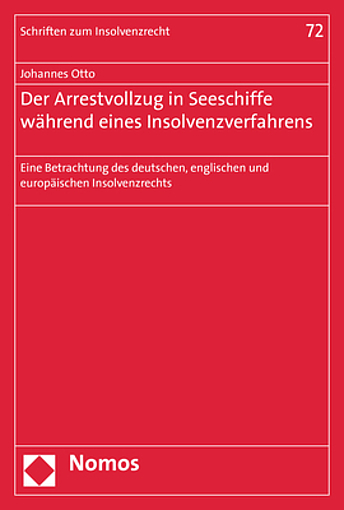englischDespite the economic relevance of insolvency cases with maritime implications, there is a lack of research studies that examine the associated problems in this respect. In particular, the arresting of vessels counteracts the objectives of insolvency proceedings. This comparative treatise offers scientific scrutiny of this topic and proposes practice-oriented solutions. It examines the protective mechanisms provided by the German and English insolvency laws and measures them according to their cross-border effects. In Germany, effective protection on the basis of the current legal situation is only achievable by classifying registered vessels as movable property. This contrasts with the unanimous opinion to date. This study’s dogmatic starting point is a detailed interpretation of the legal definition of immovable property under insolvency law in § 49 of InsO (Germany’s insolvency code).
Trotz der ökonomischen Relevanz von Insolvenzfällen mit seerechtlichen Implikationen mangelt es bisher an wissenschaftlichen Arbeiten zu den damit verbundenen Problemstellungen. Die Ziele des Insolvenzverfahrens werden hierbei insbesondere durch einen Arrestvollzug in Seeschiffe konterkariert.
Die Abhandlung leistet einen Beitrag zur wissenschaftlichen Aufarbeitung der Thematik und beinhaltet praxisorientierte Lösungsvorschläge. Hierzu werden die Schutzmechanismen des deutschen und englischen Insolvenzrechts rechtsvergleichend untersucht und an ihrer grenzüberschreitenden Wirkung gemessen. In Deutschland lässt sich ein effektiver Schutz auf Grundlage der aktuellen Gesetzeslage nur durch eine der bisher einhelligen Meinung widersprechende Einordnung eingetragener Seeschiffe als bewegliche Gegenstände begründen. Dogmatischer Ansatzpunkt ist eine teleologisch-differenzierte Auslegung der insolvenzrechtlichen Legaldefinition unbeweglicher Gegenstände in § 49 InsO.


